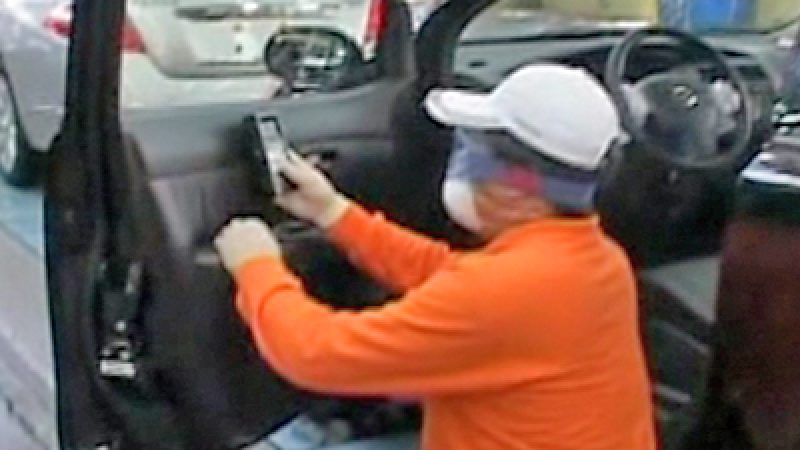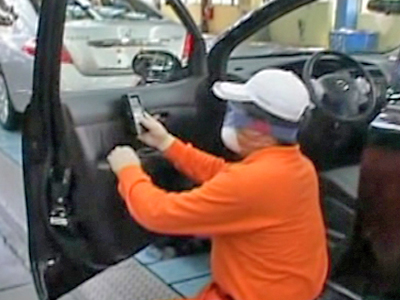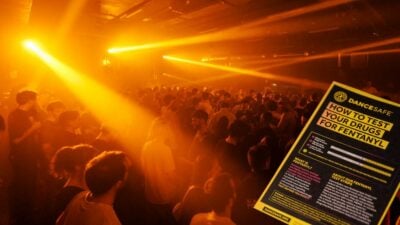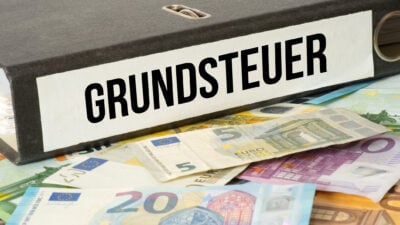
Nissan in Taiwan to Run Radiation Checks on Japan-made Auto Parts

According to a Taiwanese Nissan affiliate announcement on Tuesday, Nissan Motor will begin radiation checks on all car parts imported from Japan on April 1st. The move is attempt to reassure customers of product safety.
A deputy PR manager of Yulon Nissan Motor says the company will conduct tests at three stages in the production process.
[Hsieh Ting-lin, Deputy PR Manager, Yulon Nissan Motor]:
„We start checking the cargo as soon as it reaches the port, before we store them into warehouse. And as you can see at the back, we also conduct a thorough check after these cars have been assembled.“
Taiwanese authorities have stepped up checks on imported Japanese products since the earthquake and tsunami caused a crisis at a nuclear power plant in the country.
[Hsieh Ting-lin, Deputy PR Manager, Yulon Nissan Motor]:
„At the last checking point, we focus on areas where customers often touch. There are six parts. First is the engine, second is the driver’s seat, third is the passenger seat, fourth is the trunk, fifth is the exterior of car, and sixth are the tires.“
Cars that have been checked and cleared with radiation levels of lower than the permitted zero-point-two millisieverts will have a sticker on the lower right corner of the windshields stating „Radiation Check OK.“
Taiwan is one of many countries that have begun checking products imported from Japan for radiation contamination. The island nation has already placed bans on several food imports from five Japanese prefectures hit by the nuclear crisis, where tests have shown radiation levels higher than those allowed by Taiwan safety standards.
 Foto: NTD
Foto: NTD



























vielen Dank, dass Sie unseren Kommentar-Bereich nutzen.
Bitte verzichten Sie auf Unterstellungen, Schimpfworte, aggressive Formulierungen und Werbe-Links. Solche Kommentare werden wir nicht veröffentlichen. Dies umfasst ebenso abschweifende Kommentare, die keinen konkreten Bezug zum jeweiligen Artikel haben. Viele Kommentare waren bisher schon anregend und auf die Themen bezogen. Wir bitten Sie um eine Qualität, die den Artikeln entspricht, so haben wir alle etwas davon.
Da wir die Verantwortung für jeden veröffentlichten Kommentar tragen, geben wir Kommentare erst nach einer Prüfung frei. Je nach Aufkommen kann es deswegen zu zeitlichen Verzögerungen kommen.
Ihre Epoch Times - Redaktion